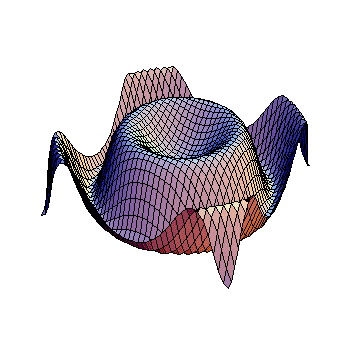Since they're both quadratics we can just factor them out and see if any of the factors cancel each other.
We begin by factoring the upper function, #x^2 - 2x -3#
As any quadratic, with the #x^2# coefficient being 1, we can say it's the product of two monomials #(x+a)(x+b)#.
We notice that if we can put the function in that way, whenever #x = -a# or #x = -b# one of the brackets will be equal to 0 and will make the whole thing a zero, so we can find the values of #a# and #b# by find the roots, using the quadratic equation.
Or, we can expand that product
#(x+a)(x+b) = x^2 + ax + bx + ab = x^2 + (a+b)x +ab#
And see that we can just find two numbers that when multiplied give out the constant, in this case, #-3# and when summed give out #-2#. with the added caveat that #-a# and #-b# be roots.
While there isn't a formula it's often easier and quicker if we're only dealing with pretty numbers like this (if it starts getting too tough, it's best to go for the quadratics though).
In this case we have #a = -3# and #b = 1#, or vice versa, order doesn't matter.
We do the same thing to the bottom function, but since #2x^2 - 10x + 12# has a 2 in front of #x^2# that trick doesn't work. We need to either do #(2x + a)(x+b)# or ... we can put two in evidence and work with the new function, #2(x^2-5x+6)#
It's important to note that if you do go with #(2x + a)(x+b)# you'll get a value of #a# that's double the other, and order will matter if you're checking by making the product.
Factoring that function within the brackets we see that #-3# and #-2# work. So we have
#(x^2 - 2x -3)/(2x^2 - 10x + 12) = ((x-3)(x-1))/(2(x-3)(x-2))#
We cancel out the #(x-3)# and expand what's left
#(x^2 - 2x -3)/(2x^2 - 10x + 12) = (x-1)/(2x-4)#
Do remember to note that #x!=3#, because if it were, we'd be doing a division by 0.

